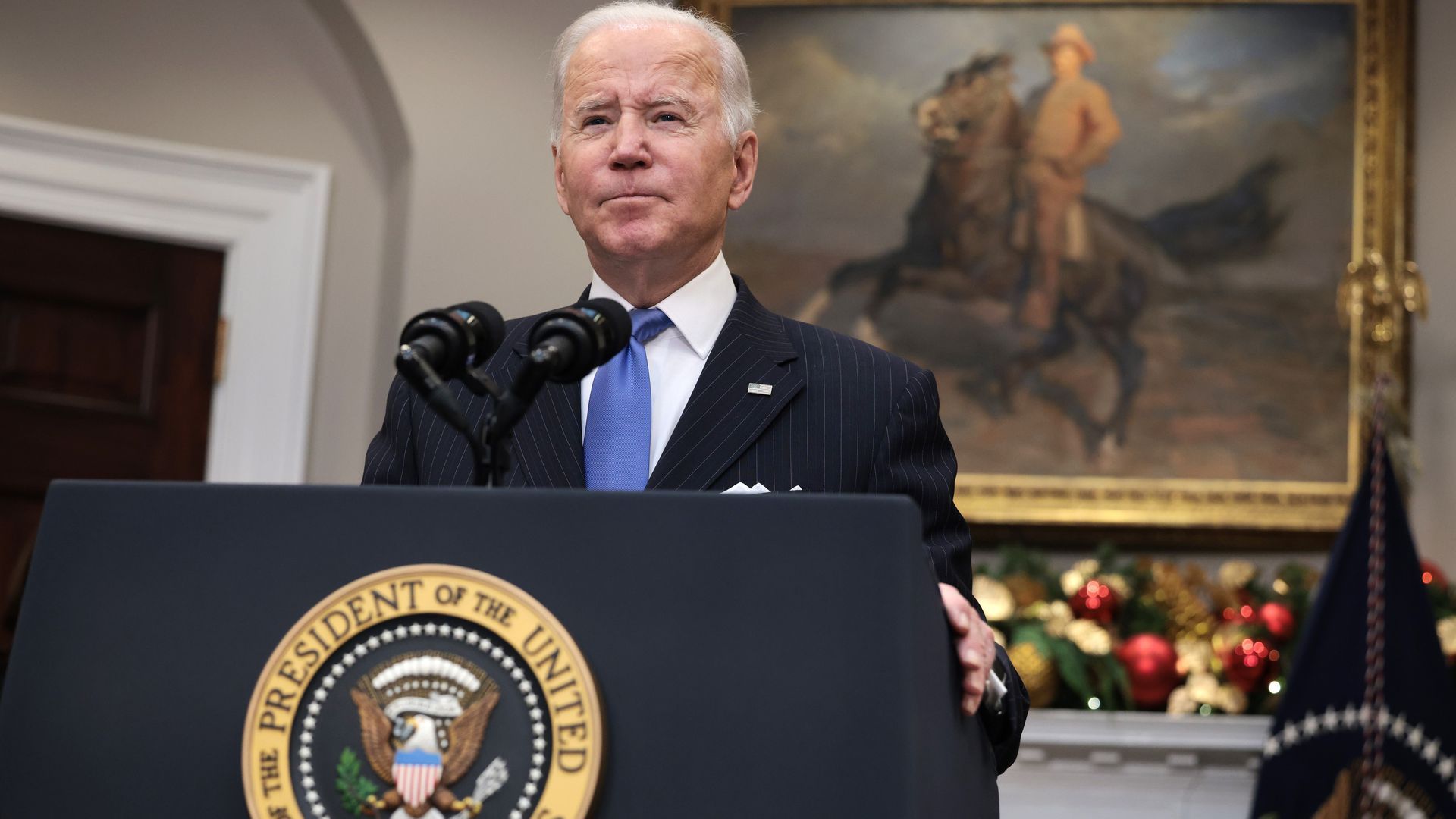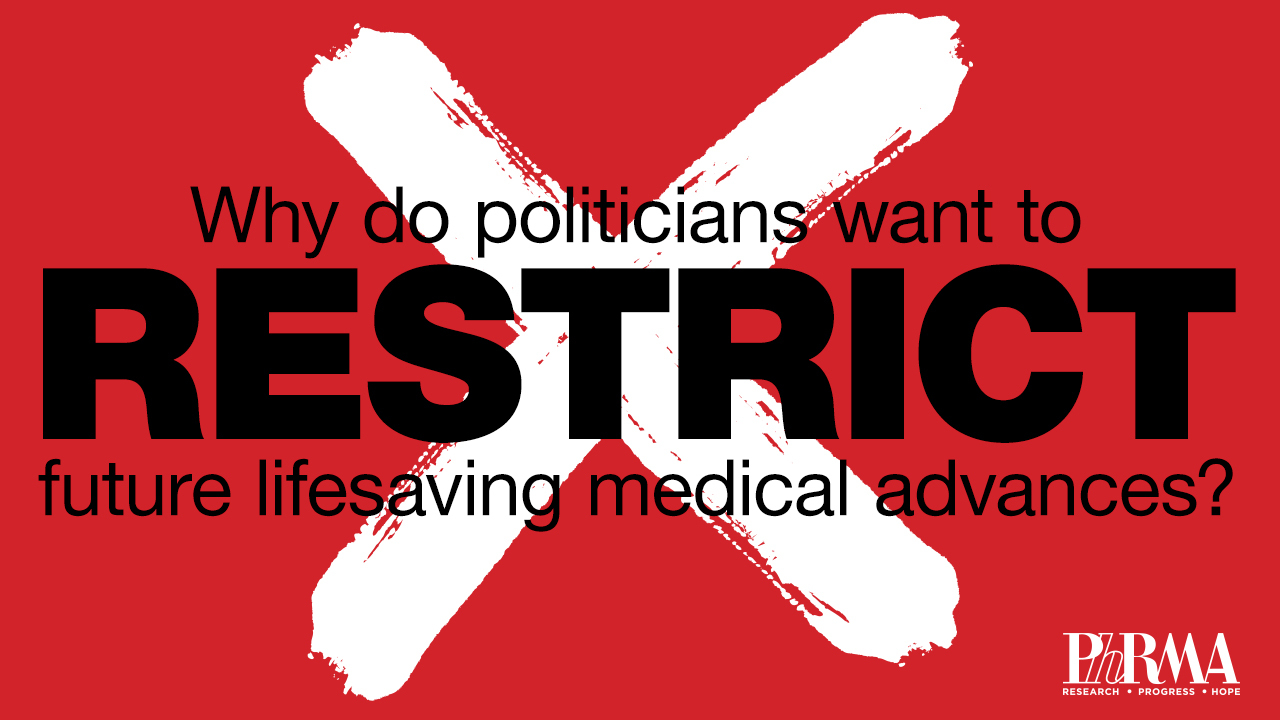| |
| |
| |
| Presented By PhRMA |
| |
| Axios Vitals |
| By Tina Reed ·Dec 01, 2021 |
| Good morning, Vitals readers. Today's newsletter is 1,076 words or a 4-minute read. |
| |
| |
| 1 big thing: All eyes on the lookout for Omicron |
 |
|
| Illustration: Sarah Grillo/Axios |
| |
| Laboratories across the U.S. are on the lookout for the new COVID-19 variant Omicron, which officials have said will almost inevitably be detected here. Why it matters: The world is on high alert as scientists race to understand if the variant could be a game-changer in the pandemic. The big picture: CDC director Rochelle Walensky told reporters during a briefing on Tuesday the U.S. has a "robust" surveillance system. - She pointed to U.S. international travel policies that require pre-departure testing both for the unvaccinated and vaccinated.
- "We do have the mechanisms in place we need to find it should and when it occurs," she said.
- The CDC also announced it planned to expand surveillance at four U.S. airports, CNN reported. The Biden administration is considering stricter travel guidelines for entry into the U.S., per the Washington Post.
Yes, but: Some public health experts have raised the question about whether the new COVID variant omicron may have already arrived and gone undetected, surfacing questions about America's COVID surveillance capabilities. - "We're not doing nearly enough genomic sequencing in this country still," Céline Gounder, an infectious disease specialist and epidemiologist at New York University and Bellevue Hospital, told the Guardian.
Driving the news: The U.S. is catching up when it comes to global surveillance, officials at the Association of Public Health Laboratories told reporters Tuesday. - The U.S. is now able to sequence 40,000 to 80,000 tests weekly between about 70 state and local health labs, as well as CDC labs, the Associated Press reported.
- "We're in a much, much better place than a year ago or even six or nine months ago," said Kenny Beckman of the University of Minnesota, per the AP.
The bottom line: But surveillance can only do so much, Peter Hotez, a vaccine researcher at the Baylor College of Medicine, told comedian Trevor Noah. - "By the time we identify a new variant, it's already gone global," Hotez said.
|
    |
| |
| |
| 2. Judges block Biden vaccine mandate nationwide |
 |
|
| Photo: Anna Moneymaker via Getty Images |
| |
| The Biden administration was temporarily blocked from enforcing COVID-19 vaccine mandates for millions of workers by federal judges in two states on Tuesday, Axios' Shawna Chen writes. Why it matters: These are the fourth and fifth roadblocks in recent weeks that President Biden's employer vaccine mandates have hit in the courts. Driving the news: Judge Terry Doughty of the U.S. District Court of the Western District of Louisiana said the preliminary injunction was needed to safeguard the separation of powers and protect the "liberty interests of the unvaccinated." Meanwhile, U.S. District Judge Gregory Van Tatenhove issued a similar ruling in Frankfort, Kentucky, which temporarily prevents the enforcement of a vaccine mandate clause in new government contracts, per Reuters. - The rulings came a day after a federal court in Missouri blocked the Biden administration from enforcing its vaccine mandate for health care workers in 10 states.
What to watch: An appeal of Doughty's ruling would head to the 5th U.S. Circuit Court of Appeals in New Orleans, which affirmed a lower court decision to block Biden's vaccine mandate for businesses with more than 100 workers. |
    |
| |
| |
| 3. FDA panel backs Merck's COVID pill |
 |
|
| Photo illustration: Jakub Porzycki/NurPhoto via Getty Images |
| |
| An FDA advisory panel on Tuesday voted 13-10 to endorse an antiviral pill developed by Merck and Ridgeback Biotherapeutics to treat adults at high risk of becoming severely ill from COVID-19, despite concerns over its effectiveness and safety. Why it matters: Oral antiviral drugs designed to prevent or treat COVID-19 could be key pandemic-fighting tools, if proven effective, especially as new variants emerge. - If authorized, the Merck drug, known as molnupiravir, would be the first treatment of its kind to be made available in the U.S.
Between the lines: Most the panelists said they believed there should be limits to the use of the drug, and that the FDA should not approve its use for pregnant women or children. - Several expressed concern over the "safety profile" of the drug and said it should be used strictly with high-risk individuals.
- The FDA must still decide whether to follow the panel's recommendation, though it typically does.
What to watch: Pfizer has also asked the FDA for emergency authorization of a similar antiviral pill it developed called Paxlovid. |
    |
| |
| |
| A message from PhRMA |
| The hyper-partisan drug pricing plan may be detrimental to patients |
| |
 |
| |
| It's government price setting that does little to address patient affordability and will decimate the US competitive ecosystem that has brought hope to so many Americans in the form of new medical advances. This plan could result in negative consequences for the patients with the most need. |
| |
| |
| 4. SCOTUS tackles drug payments |
| The U.S. Supreme Court heard oral arguments Tuesday about whether the federal government had the authority to cut hospitals' payments for outpatient drugs, Axios' Bob Herman reports. Why it matters: The controversial case involves billions of dollars for hospitals, pits not-for-profit hospitals against rural and for-profit facilities, and tests the broader legal theory of whether federal agencies can take matters into their own hands when laws are vague. Details: Justices questioned Donald Verrilli, the former U.S. solicitor general representing the American Hospital Association and other hospitals, and Christopher Michel of the Department of Justice. - Hospitals pocket large savings when acquiring certain drugs through the federal program called 340B.
- Medicare, under the Trump administration, instituted a 28.5% cut to those drug payments starting in 2018. Research indicated some hospitals were profiting excessively from the program.
- Justices peppered both sides about whether Medicare's rate adjustment abided with the law.
The bottom line: A ruling against hospitals would redistribute large sums of money from a drug discount program that many experts believe the hospital industry has abused, and it would solidify Medicare's ability to make these types of adjustments based on current law. |
    |
| |
| |
| 5. Biden admin updates National HIV/AIDS Strategy |
 |
|
| Illustration: Sarah Grillo/Axios |
| |
| The Biden administration plans to try to refocus on issues of racial disparities, better engage the private sector and push for states to reform laws that criminalize HIV exposure as part of updates to the National HIV/AIDS Strategy released today. Why it matters: The strategy update, timed to coincide with World AIDS Day, is a reminder the world is still in the midst of an HIV epidemic. - Federal data shows about 38 million people worldwide and 1.2 million people in the U.S. have HIV. More than 36 million people have died from AIDS-related illness, including 700,000 in the U.S., officials said.
- New CDC data found lingering disparities. For instance Black and Hispanic gay and bisexual men were less likely to receive an HIV diagnosis, be virally suppressed, or use pre-exposure prophylaxis (PrEP) to prevent HIV, compared with White gay and bisexual men.
What they're saying: White House officials said the plan "provides a framework" for administration's policies, research, programs, and planning through 2025 with the goal of ending the HIV epidemic in the U.S. by 2030. |
    |
| |
| |
| 6. Catch up quick |
- Dr. Oz announces GOP bid for U.S. Senate seat in Pennsylvania. (Axios)
- Biogen loses patent battle over Tecfidera. (Endpoints)
- WHO advises people 60 or older to postpone travel due to Omicron. (Axios)
|
    |
| |
| |
| A message from PhRMA |
| The hyper-partisan drug pricing plan may be detrimental to patients |
| |
 |
| |
| It's government price setting that does little to address patient affordability and will decimate the US competitive ecosystem that has brought hope to so many Americans in the form of new medical advances. This plan could result in negative consequences for the patients with the most need. |
| |
| 📫 Did someone forward this email to you? Here's how to subscribe. |
 | | It'll help you deliver employee communications more effectively. | | |








No comments:
Post a Comment